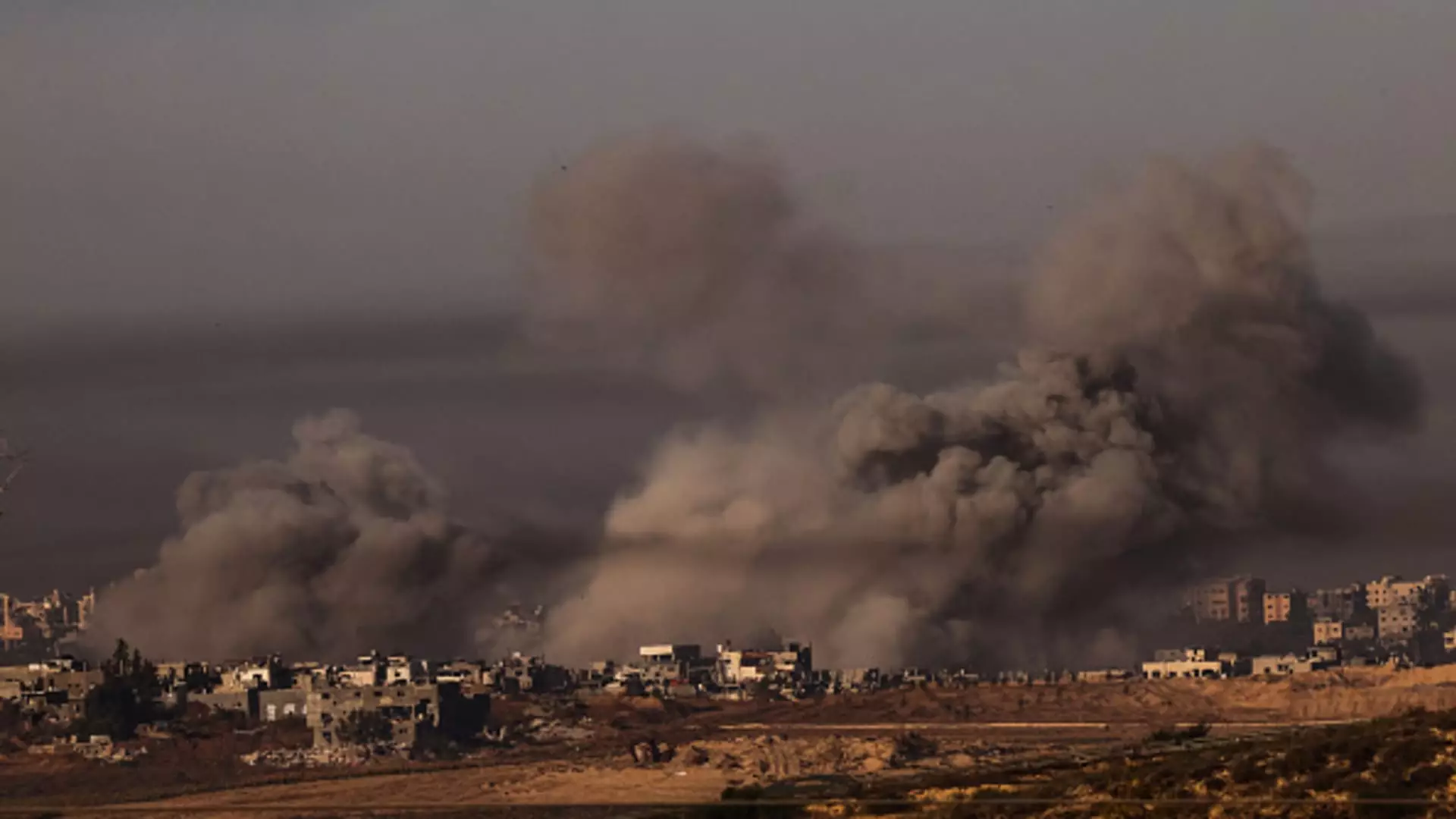The Israel-Palestine conflict has once again escalated, with no signs of an immediate resolution. As Israeli forces continue to target Hamas militants in Gaza, there is growing concern about the harm being caused to Palestinian civilians. This has led to increased pressure from the United States for Israel to exercise more caution in its military offensive. The senior U.S. officials, including Vice President Kamala Harris and Defense Secretary Lloyd Austin, have emphasized the importance of protecting innocent lives and respecting international humanitarian law. However, despite these calls for restraint, the violence shows no signs of abating.
Israeli forces have intensified their military offensive in Gaza, following the breakdown of a truce. The airstrikes and artillery bombardment have resulted in the deaths of numerous Palestinians, including civilians and children. The Israeli military has issued evacuation orders for Palestinians in certain areas, claiming to designate “safe areas” for Gaza civilians. However, the effectiveness of these orders is questionable, given the limited access to information and basic necessities like electricity in Gaza. The destruction caused by the Israeli raids has devastated the population, further exacerbating the humanitarian crisis in the region.
The United States has been increasingly vocal in calling for Israel to exercise more caution in its military operations. Vice President Kamala Harris expressed concern about the scale of civilian suffering in Gaza and stressed the importance of respecting international and humanitarian law. Defense Secretary Lloyd Austin went a step further, emphasizing that protecting civilians is not just a moral responsibility but also a strategic imperative. He warned that driving civilians into the hands of the enemy could turn a tactical victory into a strategic defeat. The U.S. has also pushed for increased access to humanitarian aid for Gaza, urging Israeli officials to expand humanitarian assistance.
Amidst the ongoing violence, both sides have blamed each other for the collapse of the truce. Israel accused Hamas of reneging on a deal to release all the hostages it was holding, leading to the recall of the Israeli team from Qatar, where indirect negotiations were taking place. On the other hand, the deputy head of Hamas stated that the group would not release any hostages unless there is a ceasefire and all Palestinian detainees in Israeli prisons are freed. This blame game only serves to further complicate the situation and hinder any potential progress towards peace.
French President Emmanuel Macron’s visit to Qatar to work on a new truce highlights the international community’s concern and attempts to find a diplomatic solution. However, given the deeply entrenched positions of both sides, finding a lasting resolution remains a significant challenge. Meanwhile, the humanitarian crisis in Gaza continues to worsen. The number of casualties and the destruction caused by Israeli airstrikes and artillery bombardment have left the population in dire need of aid. The limited access to basic necessities like food, water, and healthcare further compounds the suffering of the people.
Resolving the Israel-Palestine conflict requires a comprehensive and inclusive approach. It is essential for both sides to recognize the importance of dialogue, negotiation, and compromise to achieve a lasting peace. The international community, including the United States, must continue to exert pressure on both Israel and Hamas to prioritize the protection of civilians and respect for international law. Efforts should also be focused on providing immediate humanitarian aid to Gaza and addressing the long-term development needs of the region. Only through a sustained commitment to peace and justice can the cycle of violence finally be broken.
The Israel-Palestine conflict has once again escalated, with growing concerns about the harm being inflicted on Palestinian civilians. The United States has called for Israel to exercise more caution and protect innocent lives. However, the violence shows no signs of abating. The ongoing military operations have led to a humanitarian crisis, with Gaza facing widespread destruction and a dire need for aid. The international community must continue to pressure both sides to prioritize the protection of civilians and engage in meaningful dialogue towards a lasting resolution. Only through a comprehensive and inclusive approach can peace be achieved in the region.

Leave a Reply